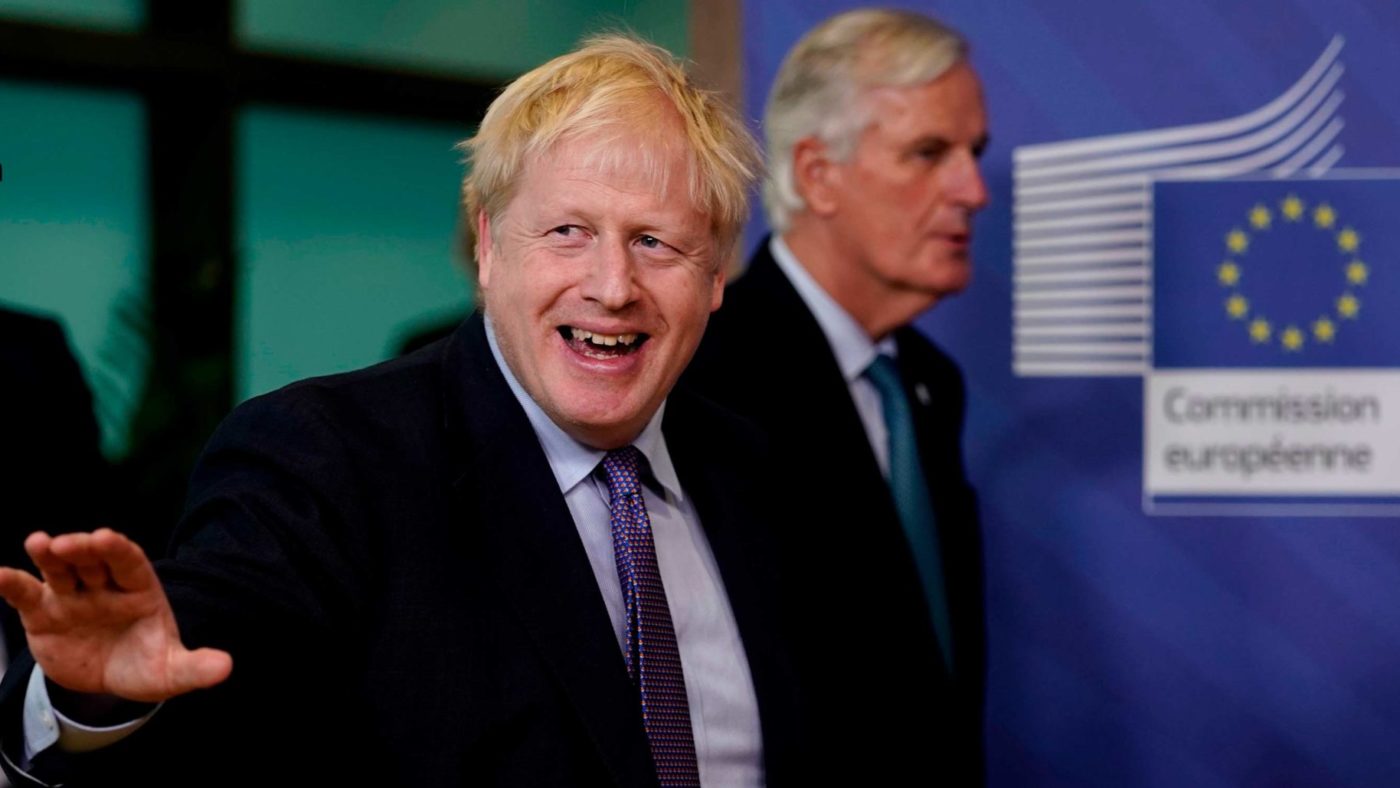There was a profound sense of déjà vu this week as Boris Johnson threatened to disregard international law with the new Internal Market Bill. As with last year’s prorogation of Parliament, his critics – not least those in the legal profession – lined up to insist that this risked shredding Britain’s international reputation for fair dealing, as well as making the prospect of No Deal all the more likely. The EU is even threatening counter legal action.
Others have suggested that, given Brandon Lewis’ comments about the bill breaking international law (albeit in a ‘limited’ way), peers will never assent to the legislation in its current form, so it won’t get through Parliament in time for the end of the transition period.
Now, it could be that the PM and his team are deadly serious and always intended to try junking parts of a Withdrawal Agreement that many Brexiteers have long thought deeply unsatisfactory. There are also rather concerning reports that Dominic Cummings wants a freer hand on state aid to create some kind of state-backed ‘tech champion’ – a course of action thoroughly dismantled by Matthew Lesh on these pages on Thursday.
More likely, though, is that these manoeuvres are really a way for Mr Johnson to signal a hard-nosed approach to negotiations and, in doing so, jolt Brussels into action.
Of course, for that to work, Mr Johnson has to look 100% genuine in his intent – and in doing so he’s provoked plenty of disquiet, not just from ardent Remainers and the legal profession. The likes of Michael Howard and Norman Lamont are hardly No 10’s greatest antagonists, and both have expressed their anxieties about the bill. Still, it feels a bit rich hearing pieties about rule-breaking from both the EU – whose own cavalier attitude to its own rules was documented so well by Lee Rotherham this week – and by People’s Vote types who only last year were demanding that we cancel a referendum result because they didn’t happen to like the result very much.
There’s a broader theme here which has applied to the negotiations throughout. It’s about the temptation to think that because Brexit, trade and international relations are serious, weighty topics that every cough and spit of the negotiations should also be treated with high seriousness. That suits the politicians involved, of course, who want their latest salvo, threat or ploy to be both piquant and potent, but the rest of us should by now have learned to see most of this for what it is – game-playing designed to shift the balance one way another, before both sides eventually get down to fudging a deal together.
And, as with the Withdrawal Agreement, I’d argue a deal remains the likeliest outcome. For one thing, there really isn’t a strong constituency for No Deal out there in the country – the vast majority of voters, including those in the Red Wall seats we hear about so often, just want some kind of agreement so they can stop hearing about Brexit and get on with their lives.
Given that Mr Johnson campaigned so heavily on having an ‘oven-ready deal’ it would also be decidedly inopportune for him to then come away without one. As occasional CapX contributor James Johnson notes, the political landscape has changed: voters overwhelmingly feel the Government’s focus should be on the pandemic, not dealing with the fallout of no deal.
Then, if a deal of some sort is done, all that remains in Number 10’s in-tray is the complete transformation of the British economy from a position of almost unfathomable fiscal gloom. For that to feel like déjà vu, you might have to go back a bit further than last year.
Click here to subscribe to our daily briefing – the best pieces from CapX and across the web.
CapX depends on the generosity of its readers. If you value what we do, please consider making a donation.


